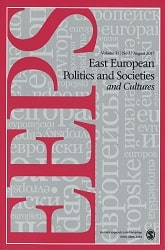Transcendence and History in Krzysztof Kieslowski’s Blind Chance
Transcendence and History in Krzysztof Kieslowski’s Blind Chance
Author(s): Costica BradatanSubject(s): Existentialism, Philosophy of Religion, Post-War period (1950 - 1989), Film / Cinema / Cinematography, Sociology of Art, Ontology, History of Art
Published by: SAGE Publications Ltd
Keywords: Polish cinema; philosophical films, God’s existence; God as a narrator; meaninglessness; deciphering silence; terror of history;
Summary/Abstract: The article examines Krzysztof Kieslowski’s Blind Chance (Przypadek, 1981) as a film with a distinct philosophical significance. According to the interpretation proposed, in Blind Chance Kieslowski touches on both universal philosophical topics (death, meaninglessness, quest for certainty and truth, deciphering silence) and “local” themes (East-European historical pessimism, geography as destiny, “terror of history”). In spite of Kieslowski’s self-declared religious agnosticism, Blind Chance could be—thanks even to the aesthetics of the film—read as a paradoxical theological statement, not so much about God per se, as about the necessity of his existence. In the same vein, the film occasions a series of meditations on historical fate and the role of geography in history, about hope and hopelessness, existential exhaustion, and legacies of silence.
Journal: East European Politics and Societies
- Issue Year: 22/2008
- Issue No: 02
- Page Range: 425-446
- Page Count: 22
- Language: English
- Content File-PDF

